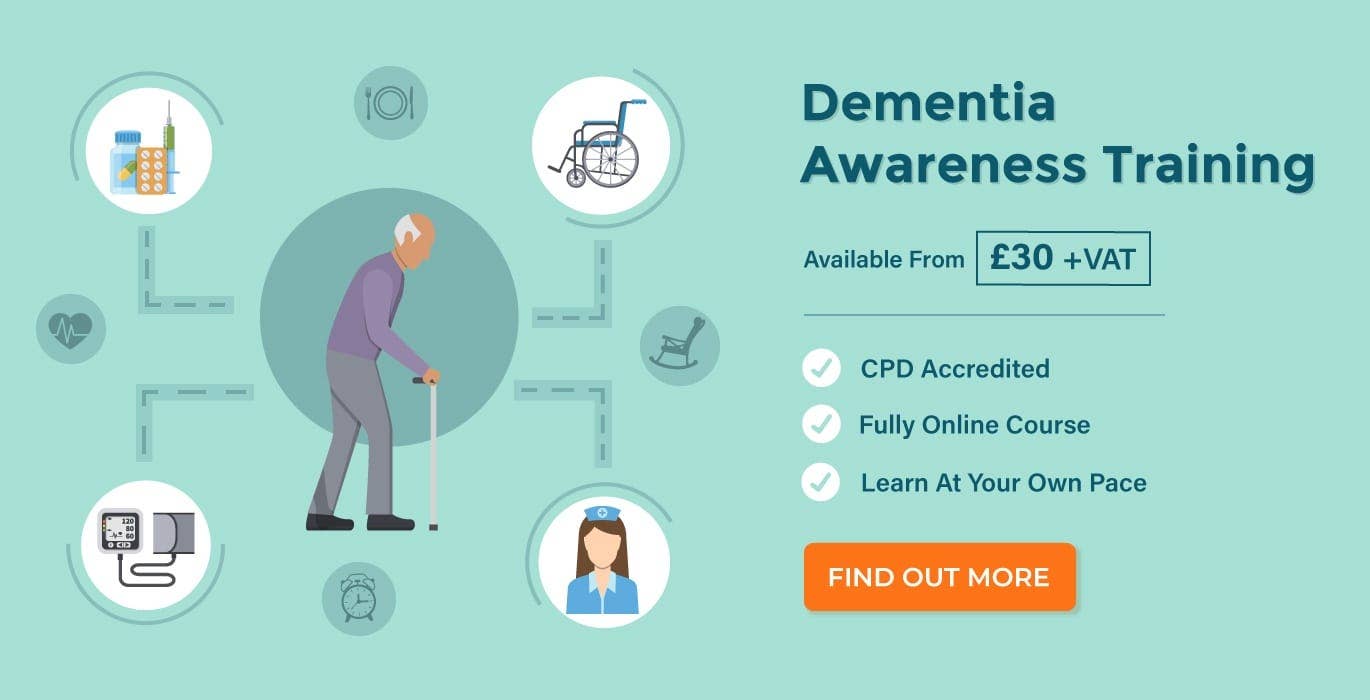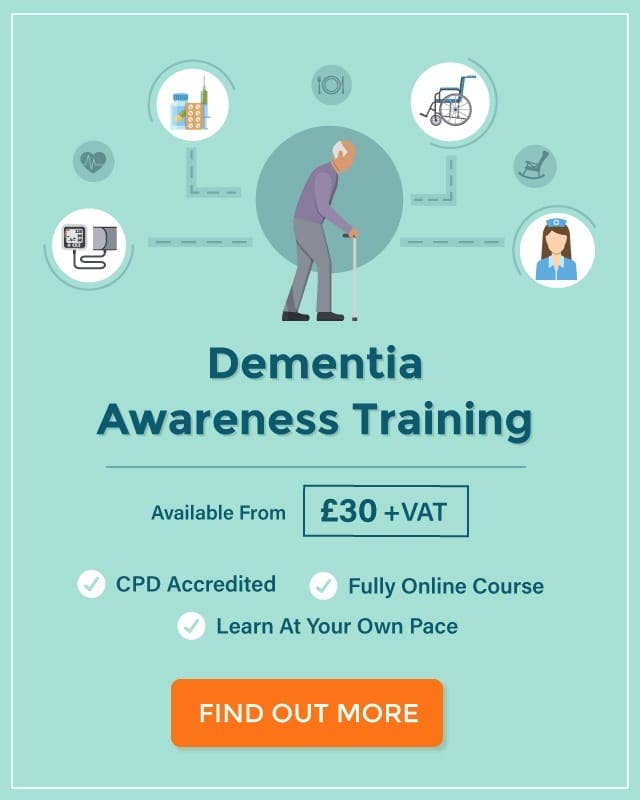Dementia & Diet: Can Certain Foods Improve Your Brain Health?
Because there’s no one cause of dementia, there’s also no one way to prevent it. But food alongside your genes, hobbies, and occupation are big factors.
By 2030, it’s estimated that 20% of people aged over 65 in the UK will have dementia or Alzheimer’s disease. Dementia develops over time through a series of environmental and genetic factors. So maintaining a healthy diet is just one essential way to prevent your likelihood of dementia.
Even your hobbies can prevent dementia. An activity like reading can prevent cognitive ageing by around 32%.
Need a Course?
Our Dementia Awareness Training Course covers all aspects of dementia, including the symptoms to look out for, information on how dementia is diagnosed and tips for adaptations you can make to the person’s home and lifestyle in order to make everyday living easier.
The link between preventing dementia and a healthy diet is heavily-researched, and findings often point to the same food groups and essential nutrients.
The brain loves foods that are:
- Rich in vitamins, such as B6, B12, and folic acid.
- Rich in antioxidants, such as vitamin C and E.
- Low in salt and saturated fat.
- Rich in omega 3 oils.
These nutrients come from many sources but are found particularly in the Mediterranean diet, which is associated with lower levels of cognitive problems like memory loss.

Why Are Vitamins B6, B12 & Folic Acid Important?
When your body is deficient in vitamins B6, B12, and folic acid, you produce homocysteine. This is a toxic acid that can lead to health problems if levels are high.
Studies have suggested that Alzheimer’s is linked to high levels of homocysteine in the body. Plus, your body needs B12 to form new neurotransmitters, which are essential to regular brain function.
Where can I get essential vitamins?
B12: liver, mackerel, sardines, salmon, milk, cheese, yoghurt, and eggs.
B6: fish, potatoes, chicken and non-citrus fruits like prunes and bananas.
Folic Acid: citrus fruits, dark green veg, avocados, dried beans, nuts, and lentils.

Why Are Antioxidants Important?
The natural process of oxidation can damage cell membranes and other areas of the body. This leads to degenerative conditions, including damage to nerve cells in the brain, which can then lead to Alzheimer’s.
Research has suggested links between antioxidants and a reduced risk of dementia, so eating foods with a decent amount of antioxidants like vitamin C and E could help prevent it.
Good sources include:
- Fruits such as oranges, grapes, kiwis, mangoes, blueberries, apricots, and strawberries.
- Vegetables such as broccoli, spinach, leeks, onions, garlic, and corn.
- Red wine (in moderation).
- Green tea.
- Lean meat and fish.
- Nuts.
Why Are Omega 3 Oils Important?
Omega 3 is an essential fatty acid. It can reduce inflammation, lower the risk of chronic diseases like heart disease, cancer, and arthritis. But most of all, omega 3 is good for the brain. If you don’t get enough omega 3, you might experience symptoms such as fatigue, poor memory, dry skin, heart problems, mood swings or depression, and poor circulation.
A higher intake of omega 3 is linked to a decrease in age-related mental decline.
Good sources include:
- Oily fish, including mackerel, salmon, trout, sardines, herring, and tuna.
- Cod liver oil.
- Nuts and seeds, including walnuts, chia seeds, flax seeds, and hemp seeds.

It’s never too late to start improving your diet and supporting your brain’s health.
Incorporating more of these foods into your diet could reduce your risk of developing degenerative diseases like dementia and improve your overall health.
Further Resources:
- How To Prevent Falls in the Elderly
- Combatting Dehydration In Health & Social Care
- Dementia Awareness Course







